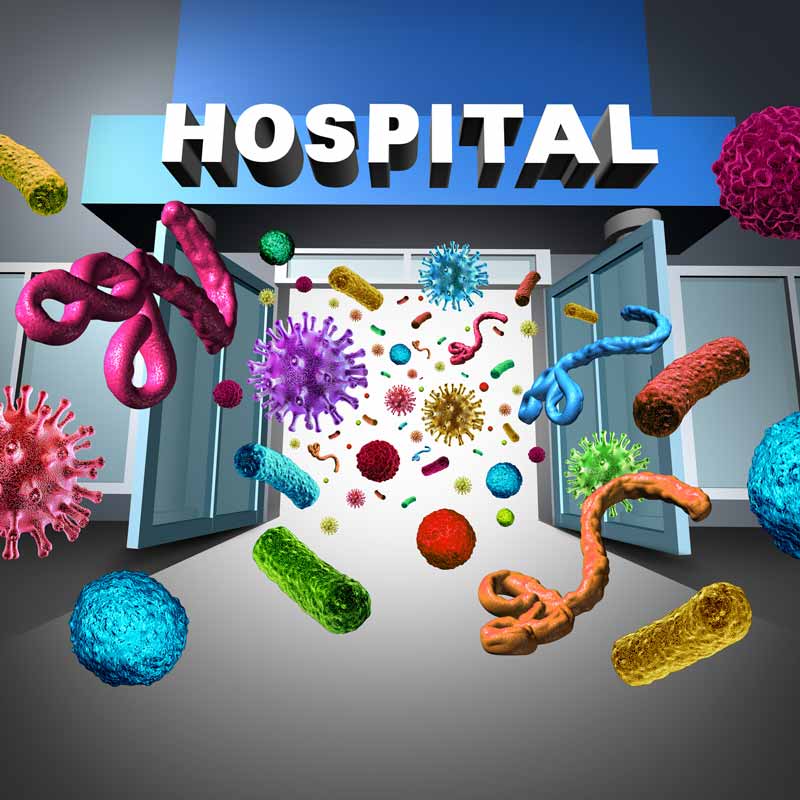Hospital-Acquired Infection and Medical Malpractice: Frequently Asked Questions

Hospital Acquired Infection and Medical Malpractice: Frequently Asked Questions
It's estimated that almost 99,000 Americans die each year as a result of a hospital-acquired infection. These types of infections are common and occur when an already hospitalized individual is sickened by a bacteria or virus they weren't infected with before they entered the facility. In some cases, the cause of the hospital-acquired infection is preventable, and the patient or their family may have grounds for a lawsuit.
Here are a few frequently asked questions about medical malpractice and hospital-acquired infections.
What Are Some Common Hospital-Acquired Infections?
Otherwise known as healthcare-associated infection or hospital-associated infection, a hospital-acquired infection is a common issue that can have a disastrous impact on a patient. Several different types of infections can be transmitted to a patient. However, a few of these are more common, including:
- Urinary tract infection
- Pneumonia
- Gastrointestinal infection
- Central nervous system infection
- Reproductive organ infection
- Skin infections
- Soft tissue infection
A number of bacteria and viruses are common in healthcare settings. When these infections are passed to a patient from a healthcare worker or equipment, it is considered a hospital-acquired infection.
How Do Hospital-Acquired Infections Occur?
A patient can acquire a hospital-related infection in a number of ways. The mode of transmission is divided into several different categories, including:
- Direct contact. A direct contact transmission occurs when one individual touches another individual and spreads an infection. In a hospital setting, this can occur when a healthcare professional touches a patient, such as when they help an elderly person sit up or change a newborn's diaper.
- Indirect contact. Indirect contact refers to a patient who is infected by an object that was handled by a healthcare worker. For example, if a healthcare worker doesn't properly sterilize equipment between patients, this is a type of indirect contact transmission.
- Vehicle transmission. This type of transmission typically refers to a patient who is sickened by infected food, water, or equipment.
Determining the mode of transmission is important because it will help your attorney determine if you have grounds to file a lawsuit against a hospital, clinic, or healthcare worker.
When Is a Hospital-Acquired Infection Considered Medical Malpractice?
Millions of individuals are sickened by hospital-acquired infections each year. However, not every patient has grounds for a lawsuit against a hospital or healthcare provider. In order for a patient to file a lawsuit, the hospital-acquired infection must dramatically impact their health or it must be improperly diagnosed or not properly treated.
To decide if you have a case, your attorney will have to determine if the healthcare provider or hospital was negligent and that this negligence led to your hospital-acquired infection.
For example, if it is found that a doctor did not properly wash their hands or sterilize equipment before performing a procedure or a surgery and this lack of basic hygiene led to a hospital-acquired infection, a patient might have grounds to sue the hospital or healthcare facility for their negligence.
If a patient dies and the family suspects that the cause of death was a hospital-acquired infection, they may have grounds to file a lawsuit against a doctor, another healthcare worker, or the hospital.
The family's attorney will hire an expert witness, and this witness will look over the patient's files. The witness, who is typically a doctor or another healthcare provider, will determine how the patient was infected, if a doctor's negligence led to this infection, and if the patient was properly treated.
Hospital-acquired infections are a common cause of additional hospitalizations, missed work, and a loss of income. If you have any further questions, contact the law firm of
Bernstein & Bernstein.


